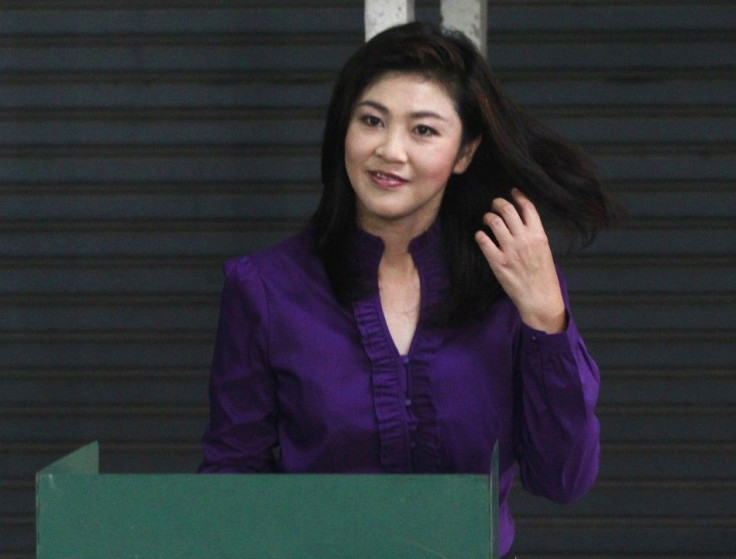Thaksin's sister, Yingluck, becomes Thai prime minister

Yingluck Shinawatra was elected Thailand's first female prime minister on Friday in a parliamentary vote just 11 weeks into a political career crafted from exile by her brother and former premier, Thaksin Shinawatra.
The 44-year-old former businesswoman, who was unopposed, easily won a majority in the 500-member parliament to take charge of a country plagued by instability since Thaksin was ousted by the army in 2006.
She said she would get to work immediately on forming a cabinet and would name her 35 ministers within a week.
"I'm ready to work with every side and solve peoples' problems," Yingluck told reporters.
"The important thing is I cannot work alone, I need to have a team, and as long as we concentrate on work, we can solve every problem," she said.
Yingluck must wait for the endorsement of King Bhumibol Adulyadej, which could come as early as Friday evening, before she officially takes up her post.
She was propelled from relative obscurity to political stardom in a matter of days after entering the election race on May 16 as campaign leader of Puea Thai, a party effectively controlled by twice-elected billionaire Thaksin. He lives in Dubai to evade a two-year jail sentence for corruption.
The decision to field Yingluck was regarded -- even by some of his enemies -- as a masterstroke by Thaksin to wrest back power and ensure the support of millions of poor voters loyal to him because of his populist policies during five years in power.
To the surprise of analysts, who had expected a closer general election, Puea Thai won an outright majority of 265 of the 500 seats in parliament, leaving the Democrats of outgoing Prime Minister Abhisit Vejjajiva a distant second with 159.
Yingluck will lead a coalition of six parties with a total 300 seats. The partners will get some cabinet posts but she is also expected to appoint some ministers from outside parliament.
The Securities and Exchange Commission, a financial market watchdog, has announced the resignation of its secretary-general, Thirachai Phuvanatnaranubala, who has been named in media reports as a potential finance minister.
SHORT HONEYMOON
The honeymoon will be brief for Yingluck. Pressure is expected to build on her to implement populist policies that critics say could ramp up government debt and inflation and put companies out of business.
In particular, she has promised a jump in the minimum wage of up to 90 percent and a guaranteed farm gate price for rice that is nearly double the market level before the election.
Usara Wilaipich, a Bangkok-based economist with Standard Chartered Bank, said it was almost certain the new government would press ahead with its policies but much would depend on how they were introduced.
"Too much attention is on the populist policies because of the worries about inflation, but their impact depends on how they are implemented and along what kind of timeline," she said.
"Everyone is waiting to find out what the final economic agenda is and how these policies will be handled," she added, noting the global economic environment would also be crucial.
One of the biggest political problems facing Yingluck is her brother's influence. She has found it difficult to convince the public of her independence from Thaksin, a former telecoms tycoon reviled by the "old money" elite but revered as a hero by millions of poor people in the cities and countryside.
Analysts say it is unlikely Thaksin's opponents or their allies in the military will try to sideline Yingluck soon as Puea Thai has such a huge mandate, but Thailand's medium-term outlook remains fragile because of political polarization and the strong feelings about Thaksin.
© Copyright Thomson Reuters 2024. All rights reserved.





















